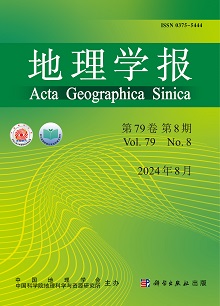Adaptation Measures to Drought Risk Perceived by Smallholder Crop Farmers in the Eastern Cape Province, South Africa: Implications for Food and Nutrition Security
2024-12-01 null null 16(卷), null(期), (null页)
The Eastern Cape Province of South Africa is largely rural, with agriculture as the main livelihood for many households. However, the province has a semi-arid climate and reliance on rain-fed agriculture, which makes the region highly vulnerable to climate-related risks, particularly droughts. Smallholder farmers, who play a crucial role in food production and local economies, face significant challenges due to limited access to resources like irrigation, modern technology, and financial support, exacerbating their vulnerability to climate variability. These droughts cause severe losses in agricultural productivity, threatening food security, increasing poverty, and driving rural migration. Despite the potential benefits of adaptation strategies, many farmers lack the tools and knowledge to effectively cope with the increasing frequency and severity of droughts. This study examines how smallholder farmers in South Africa's Eastern Cape Province perceive, experience, and cope with drought risk and its food and nutrition security implications. Using structured questionnaires, the authors collected data from 160 smallholder farmers and employed statistical analysis techniques, including a multinomial logit model. The study found that smallholder farmers understand drought risk but continue to face high vulnerability to adverse effects such as water scarcity, crop failure, increased disease incidence, and rising temperatures. Socioeconomic and institutional factors significantly influenced the adaptation strategies chosen by smallholder farmers. This study suggests that a combination of localized and modern adaptation approaches, supported by various institutional, policy, and technological interventions, is essential to enhance the resilience of these farmers. Specifically, localized strategies such as using traditional water management systems and crop diversification were effective in addressing region-specific climate challenges. At the same time, modern approaches like climate-resilient crop varieties and early-warning systems provided broader, more scalable solutions. Institutional support measures, such as access to climate information and extension services, policy interventions promoting sustainable practices, and technological advancements in irrigation and seed technologies, were key factors in improving adaptive capacity and reducing vulnerability. There is an urgent need to provide comprehensive support and empower farmers to adapt effectively, protect their livelihoods, and contribute to broader food security and poverty reduction efforts. This study highlights the importance of understanding and addressing the perceptions and experiences of smallholder farmers facing drought risk to ensure sustainable food production, income generation, and poverty alleviation.



